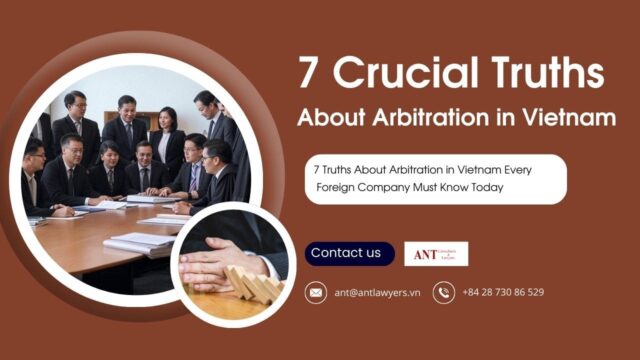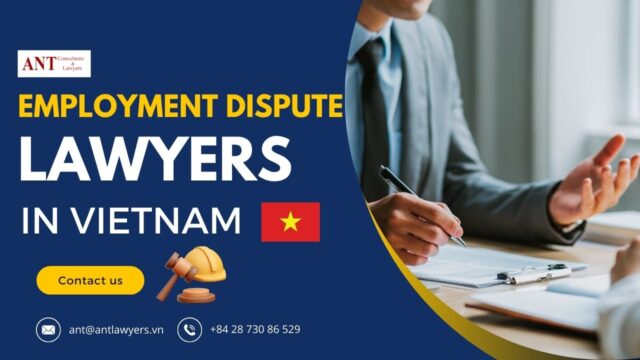Introduction: When Silence Costs Too Much
Disputes are like small fires. Easy to control early. Dangerous when ignored.
In Vietnam, many people wait too long before seeking help.
They try to “work it out” or hope things improve.
Sometimes they fear lawyers. Sometimes they fear the cost.
But what they often do not see is what they risk by waiting.
Many business owners, professionals, and even families suffer from misunderstandings that quietly grow.
They lose money. They lose sleep. They lose trust in people.
What they don’t lose, until it’s too late, is the chance to act early.
Among the most overlooked tools for protecting peace of mind are dispute lawyers in Vietnam.
These firms are not just about going to court. They are about helping people understand their rights, resolve issues, and find practical solutions before things escalate.
In here, we explains how early legal advice, especially in the context of Vietnam’s unique legal culture, saves you from more than just financial loss. It gives you time, confidence, and peace.

Delaying Legal Help Can Create Bigger Problems
People often underestimate the cost of doing nothing.
In Vietnam, it is common for people to avoid conflict.
They hope the other party will “come around” or simply forget the issue.
In reality, legal problems rarely disappear.
They grow quietly, then explode suddenly.
For example, a delayed payment from a customer seems minor.
But after three months, it becomes a cash flow crisis.
Or a handshake deal with a supplier feels friendly, until the goods arrive broken.
And without a contract, there is no clear way to fix the problem.
This is where the value of early advice becomes obvious.
When you speak to dispute lawyers in Vietnam early, they can help you document your concern, preserve evidence, or even send a polite legal notice that avoids conflict.
Doing nothing might feel easy now.
But it often becomes the most expensive decision of all.
Legal Advice Is Not Only for Lawsuits
A common myth in Vietnam is that lawyers are only for courtroom battles.
That they are too aggressive, too expensive, or too formal.
But today, that image is changing.
Modern legal professionals are advisors, not just litigators.
Many dispute lawyers in Vietnam offer early-stage consulting.
They help clients understand their position before any action is taken.
They explain your risks, offer solutions, and even support behind-the-scenes negotiation.
This kind of support is not about winning or losing.
It is about protecting your peace and making smart choices.
Sometimes, one well written email drafted with a lawyer’s input can end a dispute before it even begins.
Early legal guidance is like getting a health check. You may not need surgery, but you want to know if something is wrong.
Common Disputes That Are Best Handled Early
Many types of disputes are best addressed before emotions run high.
Here are a few common examples in Vietnam:
Business Contract Disputes
These include late deliveries, payment delays, or unfair contract terms.
Dispute lawyers in Vietnam help you understand your options quickly and draft clear communications to avoid misunderstanding.
Employment Conflicts
Whether it is a termination, salary dispute, or unfair dismissal, early legal advice protects both employers and employees.
Without legal support, even a simple labor complaint can become a costly issue.
Property and Land Disputes
Land-use rights, unclear ownership, or verbal agreements can quickly become legal battles.
Addressing these with legal help early avoids prolonged tension.
Debt Recovery
If someone owes you money, waiting too long can lead to unpaid debt or even asset transfer.
A lawyer can send a demand letter, propose settlement, or secure evidence before it’s too late.
Family Disputes and Inheritance
These are especially sensitive in Vietnamese culture.
Legal advice helps you avoid family conflict while respecting local customs and the law.
Handling these situations early with support from dispute lawyers in Vietnam gives you more control, less stress, and often a faster resolution.
What to Expect When You Contact a Lawyer
Many people feel nervous about calling a lawyer.
They imagine a cold office. Complicated language. High fees.
The truth is much simpler, and more welcoming.
When you contact dispute lawyers in Vietnam, the first step is often a basic consultation.
You explain your issue. The lawyer listens.
They ask questions to understand the situation.
Then they explain what you can do and what might happen next.
This is not about filing a lawsuit.
It is about knowing your rights and making informed decisions.
You do not need to prepare a full report or gather every detail.
You just need to share your concern.
The firm may ask for documents. They may suggest possible outcomes.
Sometimes, they recommend a simple phone call or letter.
Other times, they may guide you through steps to secure evidence or prepare a formal negotiation.
Legal advice at this stage is not a commitment to go to court.
It is simply a way to protect your position and stay ahead.
How Early Legal Support Helps You Sleep Better
Disputes affect more than money.
They affect your health, focus, and relationships.
They create stress, confusion, and fear.
That’s why people who get early legal advice often say they feel relieved, even before any action is taken.
They know what to expect.
They know someone is on their side.
They have a plan.
When you engage with dispute lawyers in Vietnam at the right time, you reduce the emotional weight of uncertainty.
You stop wondering what might go wrong.
You start focusing on how to make things right.
This kind of support is not dramatic.
It is quiet, careful, and calming.
That is why many business owners, professionals, and even families are turning to legal help earlier than before.
Because peace of mind is not a luxury.
It is a necessity.
Choosing the Right Dispute Law Firm in Vietnam
Not all law firms are the same.
Some are large and formal.
Some are small and specialized.
What matters is finding a suitable lawyer that speak English, and listens, explains, and guides. not just one that files paperwork.
Here are a few things to look for:
1.Clarity: Good lawyers explain your situation in plain language.
2.Experience: Look for firms that handle cases like yours.
3.Approachability: You should feel comfortable asking questions.
4.Strategy: They should offer more than one way forward.
5.Fee transparency: You should understand the cost before you begin.
Many dispute lawyers in Vietnam are adapting to client needs.
They now offer face to face consultations, online meetings, and even bilingual support for foreigners living or doing business in the country.
Choosing the right legal partner is like choosing a guide through a difficult road.
You want someone who knows the way, and helps you avoid the potholes.
Taking the First Step, Before It’s Too Late
The hardest part of solving a problem is often admitting it exists.
But the moment you ask for help, everything starts to change.
You move from confusion to clarity.
You move from reaction to strategy.
If you are facing a disagreement, a delay, or even a feeling that something is not right then don’t wait.
Dispute lawyers in Vietnam are there to help, not to pressure you.
They want to help you resolve things early, quietly, and smartly.
But they can only help if you act while there is still time.
The earlier you start, the more options you have.
The more options you have, the safer you feel.
And the safer you feel, the better you sleep.
Conclusion: Smart Choices Lead to Peace of Mind
Legal problems don’t always come with loud warnings.
Sometimes, they grow slowly, quietly, and invisibly.
That’s why waiting feels safe, until it is not.
In Vietnam, more people are realizing that legal support is not about conflict.
It is about clarity.
It is about control.
And it is about protecting what matters before it is threatened.
You do not need to face problems alone.
You don not need to guess what to do.
You do not need to wait for something bad to happen.
Reaching out early to dispute lawyers in Vietnam can save you more than money.
It can save your time, your focus, your relationships, and your well-being.
That’s not just legal strategy.
That’s peace of mind.
About ANT Lawyers, a Law Firm in Vietnam
We help clients overcome cultural barriers and achieve their strategic and financial outcomes, while ensuring the best interest rate protection, risk mitigation and regulatory compliance. ANT lawyers has lawyers in Ho Chi Minh city, Hanoi, and Danang, and will help customers in doing business in Vietnam.
Source: https://antlawyers.vn/disputes/dispute-lawyers-in-vietnam-7-reasons.html







